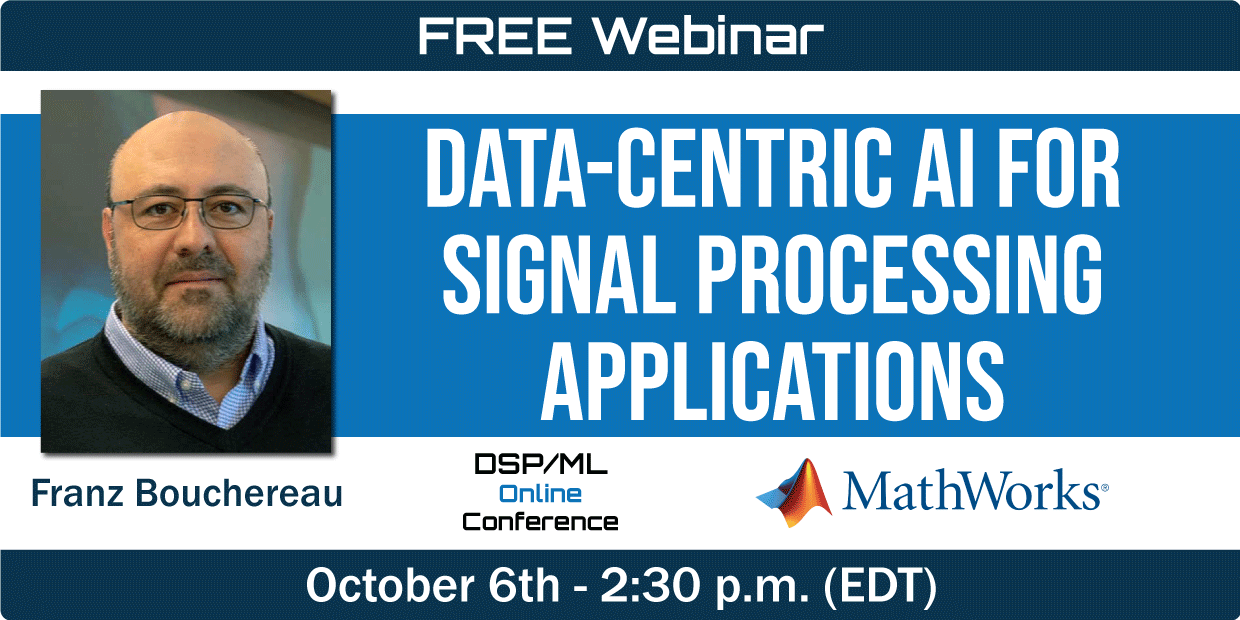Data-Centric AI for Signal Processing Applications
When: 2021-10-06 14:30 EST
Add to Calendar
Duration: 1h00
Instructor: Frantz Bouchereau
Description:
Model-centric approaches to solve AI problems have been dominant in applications where large and high-quality datasets are available. Such approaches aim to improve model performance through the development of more complex architectures.
In signal processing applications, where data is usually scarce and noisy and where advanced models and architecture experts are hard to find, a potentially more fruitful approach is a data-centric one that focuses on improving the data to make simpler network architectures perform better. The idea is to enhance signal data by improving its labels, removing noise, and reducing variance and dimensionality. This idea can be extended to include transforming signals into domains where key features become more prominent and easier to distinguish.
In this talk I go over various examples that follow a data-centric approach to improve AI-model performance. I show how signal processing techniques like time-frequency transformations, filtering, denoising, multiresolution analysis, data synthesis, and data augmentation can be used to obtain state-of-the-art results with simpler AI architectures in the solution of signal classification, signal regression, and anomaly detection problems.
Frantz Bouchereau is the engineering manager of the team responsible for Signal Processing Toolbox and Wavelet Toolbox at MathWorks where he has been since 2008. He received his Ph.D. in signal processing and communications from Northeastern University, where he specialized in statistical signal processing and wireless communications.
The MATLAB and Simulink product families are fundamental applied math and computational tools at the world's educational institutions. Adopted by more than 6,500 universities and colleges, MathWorks products accelerate the pace of learning, teaching, and research in engineering and science. MathWorks products also help prepare students for careers in industry worldwide, where the tools are widely used for data analysis, mathematical modeling, and algorithm development in collaborative research and new product development. Application areas include data analytics, mechatronics, communication systems, image processing, computational finance, and computational biology.

